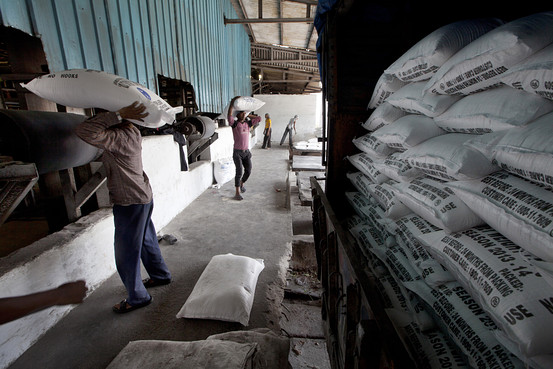Fertilizer manufacturers have approached the Indian government, expressing their concern over the inclusion of subsidy payments as a taxable part of the commodity’s price in the newly proposed goods and services tax (GST) framework. The companies think that the decision will pinch farmers. According to industry analysts and tax experts, the proposed model of GST law, on which comments have been sought, clarifies that subsidy payments are not spared from the new indirect tax regime.
The new model also includes “subsidies provided in any form or manner linked to the supply” and explains that any cost incurred by the supplier in relation to a sale of the fertilizer that is reimbursed would attract GST. Subsidy is obviously given to fertilizer manufacturers to compensate them for not recovering their entire cost from end-consumers, that is farmers. The change is significant given the fact that subsidies on the fertilizer along with subsidies on petroleum and food make up a substantial part of the central government’s total budget on all subsidies.
For 2015/2016, the allocation is Rs.30,000 crore, which is more than 50 percent less than during its peak in 2008/2009 when the price of the commodity was booming in global markets. The central government pays to manufacturers the difference between the state regulated price of fertilizer and the real cost of production or import. Currently, it levies a 1 percent central excise on domestically produced urea and a similar countervailing duty on imports, while state governments levy value added tax (VAT) in the range of up to 4 percent.
The new tax regime will replace these two levies by the central and state GST rates once it is implemented. At the moment, the standard GST rate for most products and services that is currently being discussed stands at around 18 percent. According to Pratik Jain of PwC India, “a first reading of the model law suggests that fertilizer subsidy could attract GST. Taxability of subsidy has been disputed in courts under existing law, but has generally been settled in favor of the industry. An explicit provision for taxation in the new law appears to reverse that situation. I am not sure if this is the intention”.




